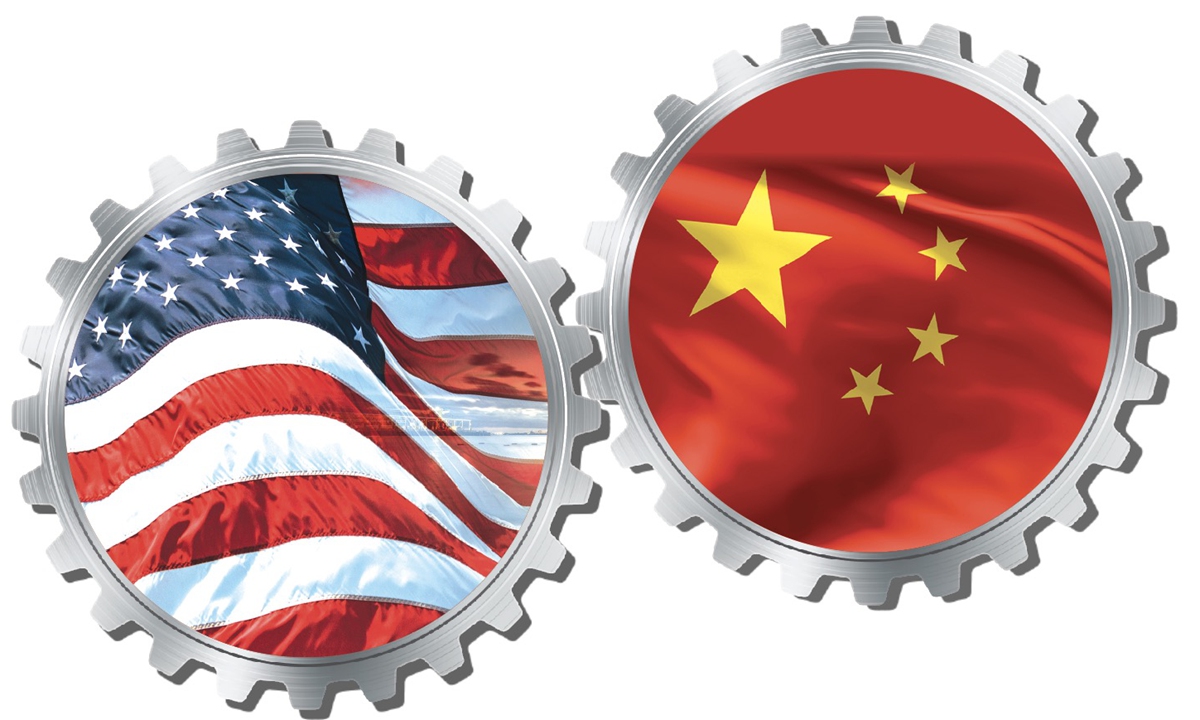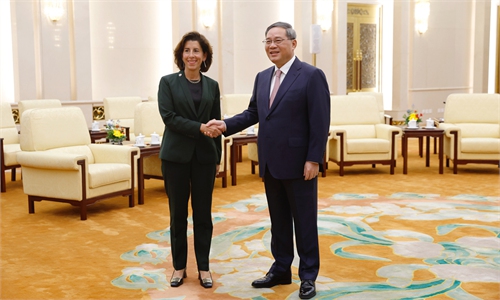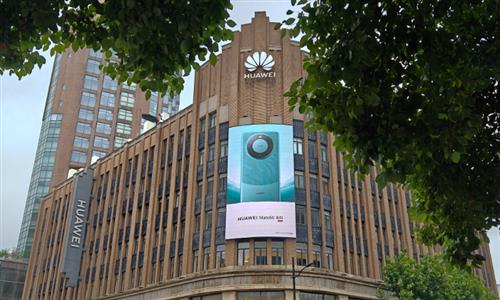
China-US Photo: GT
US Secretary of Commerce Gina Raimondo's trip to China ended Wednesday. After the meeting, the two sides agreed to establish a working group that will include business representatives to focus on commercial issues and a governmental information exchange mechanism to focus on export control issues. In my judgment, she brought with her a high level of pragmatism and realism and dealt with the issues between China and the US in commerce, trade, and several other related areas. She solved the problem with a high level of commitment rather than blowing it out of proportion.
This is highly necessary. Such working groups in the past years before the pandemic actually existed in great abundance. However, they kind of suspended their work or terminated their mandate.
Now, one point is illustrated completely, abundantly, and eloquently by Raimondo's visit to China: decoupling is impossible. Decoupling between China and the US is similar to any attempt to decouple the earth and the moon. If anyone wants to really achieve decoupling, it will be a disaster both for China and the US, as well as for the rest of the world. The risk is becoming fashionable. However, if anyone views China as a risk to be disconnected from, again, that's the wrong strategy.
During Raimondo's visit to China, Huawei announced and started to sell its latest version of smartphone, the Mate 60 Pro, using China's own proprietary technologies and breakthrough semiconductor chips. It is a very interesting coincidence, or the timing was deliberately chosen. It is demonstrated through Raimondo to the US government and the US people that any futile attempt to deny China the access to high technology will not work.
The chip war is the wrong war at the wrong time against the wrong country. China is the biggest or most important customer of semiconductor chips from the US, as well as from countries like Japan and South Korea. If you want to run your business, always keep this in mind. If you want to kill your biggest customer, it is commercial suicide. It will not work; it will force China to spend a lot of money and capital and recruit a lot of talents, not only in China but throughout the world, to achieve self-independence and self-reliance in semiconductor sector.
What will be the result of that? It means China will be self-reliant and independent. In semiconductor chips, it will also mean that the US will automatically lose the biggest semiconductor chip market in the world. And the US semiconductor companies will no longer make much revenue or profit, which will be indispensable to supporting the R&D of these American companies to continue their investment and R&D in semiconductor chips.
Huawei's launch of a new mobile phone can also show that we have made the most fundamental and important breakthrough in semiconductor chip manufacturing. And this is completely independent. That means the war on chips launched by the US, in which the US has brought several other countries like Japan, South Korea, and the Netherlands to join this war against China, has failed to deny China's access to chips. And any continuation of such a futile war against China will not serve the fundamental interests of the American people or the semiconductor businesses in the US itself. And eventually, it will be a laughing stock in front of mankind as a whole.
One very important point is that the US should work for the maximum benefit of the American people. But it doesn't mean it needs to decouple from China; it doesn't mean it needs to view China as a risk to be disconnected from. It actually means that China and the US will need to work together, not only on major issues like climate change, which affect mankind as a whole. They also need to focus on getting things done in bilateral relations.
Eventually, China and the US, in spite of all their differences, need to get along to live. Raimondo's visit to China is a case in point, that is decoupling between China and the US has been proven futile. It is time for China and the US, the two governments, the leaders of the two countries, and the business community, especially, to focus on how we can get along with each other and how we can work together to maximize benefits for the American people as well as the Chinese people.
The author is a guest professor at the Law School of Suzhou University and Vice President of the Center for China and Globalization. opinion@globaltimes.com.cn
Watch the video here.



